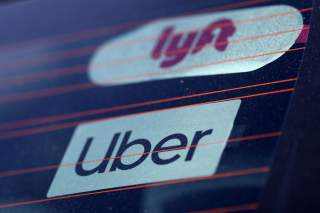New York Labor Groups Eying Benefits for Rideshare Drivers
The latest threat to big tech companies.
Some New York labor groups have expressed interest in changing New York gig-worker laws to resemble California’s AB5 bill.
-
AB5, which passed California’s state Senate and Assembly last week and is expected to be signed into law soon, would recognize some rideshare drivers as employees rather than independent contractors.
-
New York Independent Drivers Guild Executive Director Brendan Sexton said he does not support legislation similar to AB5 because it could compromise minimum pay requirements for drivers.
New York labor groups are looking to change existing state law to resemble a California bill that would recognize some rideshare drivers as employees rather than independent contractors.
Most Lyft and Uber drivers are recognized under New York law as independent contractors rather than employees, meaning they are not covered by New York’s wage and hour laws for those recognized as employees, The Wall Street Journal reported Monday.
The state’s workers’ compensation and unemployment insurance for employees also do not cover independent contractors in New York.
“We think this is really a core fight about what the future of our economy will look like and whether we will be moving forward in a society where new technology won’t be used to degrade people’s standards,” Service Employees International Union 32BJ Secretary-Treasurer Larry Engelstein told WSJ.
New York City’s Taxi and Limousine Commission put regulations in place that aim to control app-based companies such as Lyft and Uber with a guaranteed hourly wage of $17.22 after expenses. Both companies said such a guarantee would cause fares to increase and driver earnings to decrease, WSJ reported.
Lyft, for example, no longer allows drivers to log onto apps to pick up riders in unpopular areas of the city because they don’t want to pay the minimum-wage requirement for drivers who are less likely to get customers.
New York Taxi Workers Alliance Executive Director Bhairavi Desai told WSJ that such change to New York’s laws for independent contractors could give drivers more benefits, such as paid sick leave and family leave.
“Once you have protections under state law, you, as a sector of workers, get to enjoy the universal strength of millions of workers across that state,” she said.
Independent Drivers Guild Executive Director Brendan Sexton told WSJ, however, that the guild would not support legislation similar to California’s AB5 because it could compromise minimum pay requirements for drivers.
The interest in such legislation from New York labor groups comes after the California State Senate and Assembly passed AB5 last week. Uber, Lyft and DoorDash threatened to spend a collective $90 million to lobby against the bill.
California Democratic Gov. Gavin Newsom is expected to sign the legislation, The San Francisco Chronicle reported Monday.
“As a driver, you can work almost as much or as little as you want, cash out your pay instantly, take a break at a moment’s notice, or even go on a six-month vacation,” Harry Campbell, the founder of rideshare blog The Rideshare Guy and a former part-time Uber and Lyft driver, wrote in a New York Times op-ed Monday.
A bill that would classify gig workers in California as legal employees is headed to the Governor’s desk. One uber/lyft told us he’s not a fan: “I make my own hours, drive where and when I want.” https://t.co/rDJNzNttH9
— 1A (@1a) September 16, 2019
“This flexibility and that feeling of not having a boss makes ride-hail driving stand out in the vast array of service jobs and low-wage work. … But the drivers who actually want to remain independent contractors are rightly worried that the flexibility they love will disappear. Turning them into employees, as AB5 intends, turns driving into just another job,” he concluded.
Lyft said in a statement to the Daily Caller News Foundation after California’s state Senate passed AB5 on Sept. 10 that the state “political leadership missed an important opportunity to support the overwhelming majority of rideshare drivers who want a thoughtful solution that balances flexibility with an earnings standard and benefits.”
Content created by The Daily Caller News Foundation is available without charge to any eligible news publisher that can provide a large audience. For licensing opportunities of our original content, please contact [email protected].
Image: Reuters.

